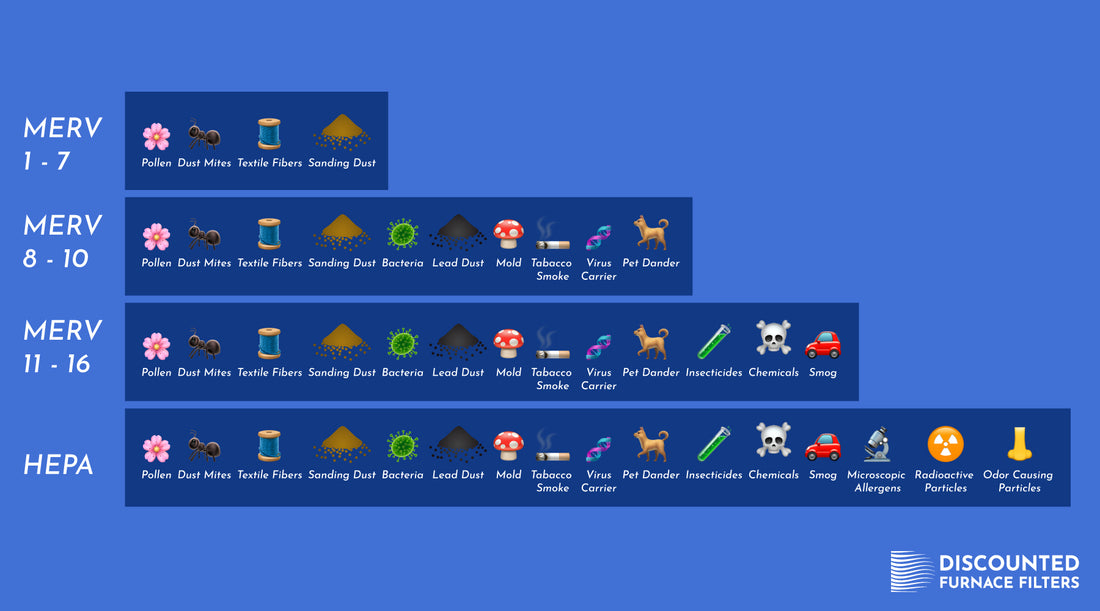The MERV rating of your filter is a very important specification but it is always the most intuitive. What does MERV rating mean and why is it an important consideration when purchasing a filter?
The MERV rating is a scale that measures how effectively your filter captures airborne contaminants. It was first developed by the by the American Society of Heating, Refrigerating, and Air Conditioning Engineers (ASHRAE).
The word MERV itself is actually an abbreviation that stands for Minimum Efficiency Reporting Values. This means that it measures the contaminant capturing abilities of the filter at its minimum efficiency or lowest performance. This is because you want the filter to still capture a desired size of particles even when it is dirty.
The MERV rating system is important because it is a useful tool to compare the performance of different filters. The scale spans from 1 - 16 and the higher the MERV rating, the more particles the filters captures. Here is a simplified table outlining the MERV rating scale from the EPA:
MERV Rating |
Particle Size |
|
MERV 1 - 7 |
Captures particles as small as 3 micron in size |
|
MERV 8 - 10
|
Captures particles as small as 1 micron in size |
|
MERV 11 - 16 |
Captures particles as small as 0.3 micron in size |
| HEPA | Captures particles smaller than 0.3 micron in size @ 99.97% efficiency. |
Which MERV rating is best for me?
Although tempting, the answer to this question is not a higher MERV rating. Higher MERV ratings are not always better and you should select a filter with the MERV that is recommended by your air cleaner manufacturer. If not, you can actually impair the performance of the furnace, or worse, damage it. This is because filters with higher MERV rating utilize a denser filter fabric that capture more particles but also create resistant air flow in the process. If your system is not design to withstand the resistance, it could become strained and less efficient, ultimately decreasing the indoor air quality and increasing your utility bill. The effects are similar to when you leave a dirty filter in your system for too long.
In general, filters with a MERV rating of less that 16, are considered by our experts to be HVAC-system-grade filters for residential, commercial and general hospital use.

